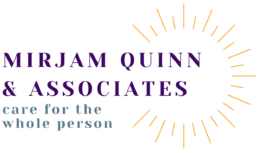Parents and teachers trying to navigate students’ AD/HD, or Attention Deficit/Hyperactivity Disorder, can be easily overwhelmed. Here’s a bit of background on AD/HD as well as interventions that are proven to help support your student or child with AD/HD.
Attention Deficit/Hyperactivity Disorder (AD/HD) is defined as a pattern of behaviors in which a child shows, usually before the age of 7, developmentally unexpected levels of:
- Inattention (daydreaming, “spacing out,” trouble concentrating, being disorganized, losing things they need,)
- Impulsivity (acting before they have had a chance to think about what they will or should do – these are kids who get mad and hit their brother even though they know they’ll get in trouble for doing it, or who shout out answers in school, or who run across the street without looking,) or
- Hyperactivity (fidgeting, climbing when it’s not appropriate, trouble staying in their seats.)
A child with AD/HD may show signs of inattention or impulsivity/hyperactivity, or they may have both. When a kid has inattentive symptoms only, it is more likely that their diagnosis will be missed until they start struggling in school, often during a school year where expectations for self-directed learning, organizational skills, or time management suddenly increase (typically third grade, seventh grade, and again at the beginning of high school and college.)
What are some AD/HD superpowers?
Kids with AD/HD tend to struggle with certain executive functioning skills. But they also tend to have unique and wonderful strengths. These strengths include:
- Holding high standards for themselves and others
- Being creative
- Being passionately curious and laser focused about specific topics or activities that are of interest to them
- Being highly principled
- Being expressive (you probably don’t have to guess what they’re thinking or feeling!)
- Being honest and direct
- Having big, beautiful feelings
- Being loyal to viewpoints, beliefs, habits, and people
- Being selective about what to eat, who to be with, and how to spend their time
- Having zest and high levels of energy
How does AD/HD affect learning and memory?
A child with AD/HD may feel like they are not as smart as other kids, or like they are having trouble with memory. Neither of these things are usually true.
Research shows that kids with AD/HD are just as smart as kids without AD/HD. The difference is that it takes them a lot more mental energy just to stay focused and on task, which can make schoolwork really challenging. While a neurotypical kid may spend 5% of their mental energy on regulating boredom and distractions and 95% of their mental energy on understanding the new concept being taught in math, a kid with attention difficulties may spend 40% of their mental energy on regulating boredom and distractions and only have 60% of their mental energy left for understanding their math lesson. A kid with inattention and hyperactivity/impulsivity may spend 40% of their mental energy on regulating boredom and distractions, 50% on regulating their internal feeling of restlessness so they can stay in their seat, and only have 10% left over for understanding the math lesson.
Memory has four parts to it: noticing information, realizing that THIS information is important information that we should attend to (instead of the fly that is buzzing around the classroom or the ticking of the clock,) encoding the information into our memory, and, later, retrieving it from our memory storage when we need it (like for a test.) Usually when people are talking about memory, they are thinking just of that last part (which we call retrieval.) But all four parts of memory are really important! Kids with AD/HD tend to have trouble with the second step (paying attention to the math lesson and filtering out the buzzing fly instead of vice versa.) So even though they were physically present in the math lesson, and maybe even looking at the teacher, when they later cannot retrieve what they learned in the math lesson, this is often because this important new information never made it into their memory storage to begin with, rather than “true” issues with memory.
Kids who have AD/HD do not misbehave intentionally – but their difficulties with attention and impulse control may cause them to:
- Not make consistent eye contact
- Seem like they are ignoring you/not listening
- Fall behind at school
- Continue misbehaving even after they have been told not to
- Get upset – and stay upset – more easily than other kids
- Talk too much, or talk at times when talking isn’t appropriate
These behaviors, although they are not intentional, can be really frustrating for adults. Indeed, research shows that, by the age of 12, a child with AD/HD will have heard 20,000 (!!!) more negative messages (criticisms and corrections) than their neurotypical peers. We also know that while negative messages are damaging for any kid, they are even more harmful to children with AD/HD due to a phenomenon called Rejection-Sensitivity Dysphoria (RSD.) Kids with RSD (which is common in kids with AD/HD and ASD) are extra sensitive to negative feedback. This can cause them to have strong negative reactions (both externally oriented – like outbursts – and internally oriented – like self criticism) to negative feedback from others. If their negative reaction is externally oriented, it is likely that this will cause a vicious cycle in which the child’s reaction causes more negative feedback, which in turn causes more negative reactions from the child, and so on. If their negative reaction is internally oriented, it is likely that their self esteem will suffer and they will avoid challenges situations in which they may be criticized again. This can lead to problems with depression, anxiety, and school avoidance.
AD/HD is a neurodevelopmental difference, meaning that the brains of kids with AD/HD develop differently before birth or during childhood. We don’t know exactly how AD/HD develops, but we do know that AD/HD is highly heritable, meaning that it tends to run in families. What we know for sure is that diet is NOT a cause of AD/HD. Neither artificial substances in foods nor sugar cause AD/HD, and putting a kiddo with AD/HD on a special diet will not address the AD/HD symptoms. This doesn’t mean that a healthy diet that promotes healthy gut bacteria is a bad idea though, because kids with AD/HD are more likely than neurotypical kids to struggle with upset tummies or other stomach issues. So, changing their diets won’t change their neurotype, but it can help them feel better overall – and kids who feel better, can regulate better.
Additionally, because AD/HD is a neurotype (a special way that your brain is wired) people do not typically outgrow AD/HD. As their brains mature and they find workarounds for the issues impacting them most, life usually gets easier. But a person with AD/HD will always have to use more of their mental capacity on paying attention and inhibiting impulses than their peers. Because AD/HD is a way your brain is wired, the best kind of treatment for the challenges associated with AD/HD is a long-term treatment that changes form over time and in different settings but does not stop.
What therapy options do we offer to support a child with AD/HD?
Because we want to help kids do well across settings, at MQA we offer a combination of individual therapy (for problem solving and support – it’s tough being a neurodivergent kid in a neurotypical world,) family therapy (Parent-Child Interaction Therapy, or PCIT, is a highly effective intervention for kids ages 3 – 6 with big behaviors, and Collaborative and Proactive Solutions, or CPS, is a very effective intervention for kids ages 7 + with big behaviors,) parent support (to help you establish effective interventions at home,) communication with teachers (to help establish support at school,) and our Surf the Waves group, where kids can connect with other kids who have similar challenges, support one another, learn universally helpful coping skills, and practice self regulation in a safe space.
Here are some interventions that work really well for kids with AD/HD (your therapist will assist with all of these:)
Connect with these strategies
- Carve out some special time with just you and your child, no phones, to do an activity that your child really wants to do, on a regular basis (your therapist can help you out with this!)
- Regular family meetings to connect with low pressure activities. No discussing problems or issues – oftentimes, a “high, low, buffalo” structure works really well.
- Give specific, labeled praise (where you are describing exactly what you like – e.g. “I like the way you used so many different colors here” vs. “nice job”) as often as possible, especially when you notice your child doing something that is often hard for them. Think small here. For a really impulsive kid, waiting for 15 seconds while you finish your sentence in an adult conversation might be at the outer limit of what they can do, and thus praise-worthy! If you reprimand your child and they adjust their behavior, immediately praise them for this (“good listening,” “thank you for minding.”) Praise should outnumber reprimands by a ratio of at least 3:1.
- If your kid has behaved in a less than ideal way, allow for – and encourage – re-dos. A re-do is basically a chance to do something again, the appropriate way. E.g. if you ask your child to complete a chore and they yell, “You never make my brother do a chore!” say, “Let’s try that again” – and if they do it successfully, provide praise.)
Give warnings with choices and be patient
- Lots of kids with AD/HD have a tough time transitioning and many of them have a hard time having a solid sense of time (both its passing and its importance.)
- Give warnings with choices. The good old 5-minute warning is really helpful for many kids with AD/HD because knowing what’s coming reduces flexibility demands, leaving more mental resources for self regulation. This can sound like: “In five minutes, we need to turn off the TV and go. When it is time, do you want to turn off the TV on your own, or do you want me to do it for you?”
- Be patient. If your family is like most and sometimes you have a million places to be at once, this can lead to tough situations that really test our own flexibility – because often, the more we try to rush a kid with AD/HD, the more slowly they move. And then when we blow our top because they’re moving so slowly, they in turn blow their top and now we’re REALLY late. So think of it this way: You’re going to pay either way (by being late.) You can decide to pay now by going slowly and attending to their needs or you can pay later when they have a massive meltdown.
Pay attention to HALT, exercise and practice
- Paying attention to HALT: Is your child Hungry, Angry, Lonely, or Tired? If you see them entering the danger zone, make sure to offer a snack and water, calm touch, connection, and/or rest.
- Exercise is deeply regulating, especially for kids who have sensory needs, which is the case for lots of neurodivergent kids. Try to build in lots of time to run and bounce and jump and climb (especially outside.)
- Practice skills that are hard. Our brains are always growing and changing, so when we struggle with something, the best way to get better at it is to practice it lots and lots. Frequently practicing skills that are hard (e.g. by playing lots of 5-minute games to practice losing so the stakes aren’t so high or taking martial arts classes to practice patience and restraint,) in a supportive environment, is key.
Utilize these behavioral interventions
- Establish clear specific daily goals for the child
- Establish and consistently enforce clear rules
- Give clear directions
- Praise positive behaviors, ignore minor negative behaviors, and use appropriate, non-physical consequences for misbehaviors
- Use a daily report card at school to motivate the child and facilitate communication between school and home
Problem solving, therapy and medication
- Because kids with AD/HD have trouble connecting past negative outcomes to current situations and behavior, it can be really helpful for you to both talk through past challenging situations (What went well, what did not go so well, how can we improve outcomes next time?) and to forecast challenging situations that are likely to come up in the future (“When it’s time to turn off the Switch, that will probably feel really disappointing. How will you handle it?”)
- Therapy to help kids navigate the emotional impact of navigating the world as a neurodivergent kid
- Medication management (because not all kids with AD/HD respond to stimulant medication, it’s important to evaluate carefully whether the medication is helping the child.) We like Dr. Bill Pappagiannopoulos and Dr. Linda Aubergine for medication management.
What strategies are proven to not be effective to help a child with AD/HD?
Interventions that usually are not effective for a child with AD/HD include:
- Standalone talk therapy
- Punishment
- Chiropractic intervention
- Biofeedback
- Dietary supplements
- Sensory integration training
Following a 1991 ruling of the US Department of Education, kids with AD/HD are eligible to receive special educational services in school settings under the IDEA Act (Individuals with Disabilities Education Act) and Section 504 of the 1973 Rehabilitation Act. This legislation mandates that appropriate educational services be provided for all kids with special educational needs, including children with AD/HD. If your child’s AD/HD symptoms are making it tough for them to function at school, please speak to your child’s teacher or principal in order to help get school-based supports set in place.
Kids with AD/HD are a marvel and so much fun to be around. We hope that these tips help you feel a bit more equipped to help your child to move through tough moments – and if that doesn’t work – contact our team of therapists. We love working with neurodivergent kiddos and their families!


